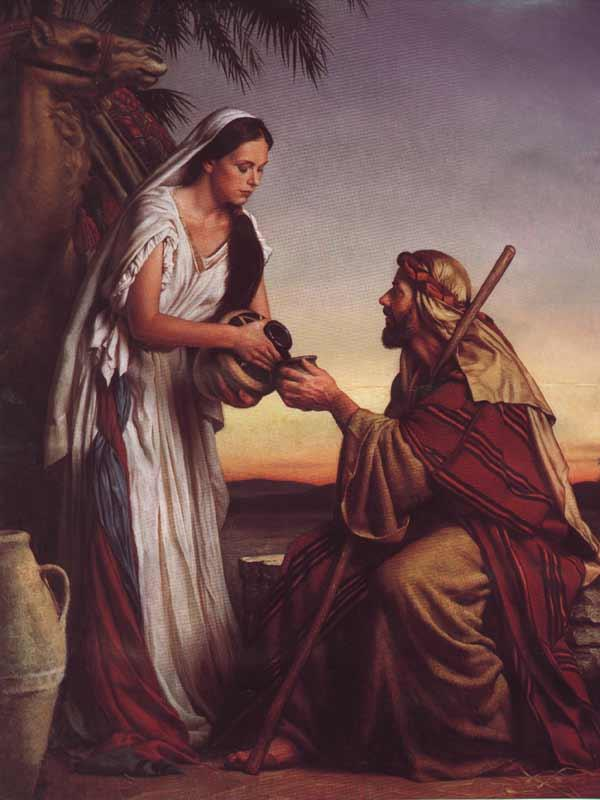Betrothal
Consent and Betrothal
And they called Rebekah, and said to her, Wilt thou go with this man? And she said, I will go. (Genesis 24:58)
AC 3180. And they called Rebekah, and said unto her, Wilt thou go with this man? And she said, I will go. That this signifies full consent, is evident from the sense resulting from the internal sense of these words; for when to the question she replied, “I will go,” it denotes that she fully consented. The full consent of truth is given when truth perceives in itself an image of good, and in good the very effigy of itself from which it is.
CL 21/TCR 748. With us [in heaven] a priest does minister at betrothals, and hears, receives, confirms, and consecrates the consent. Consent is the essential of marriage, all that follows being its formalities.
AC 3155. For with the initiation and conjunction of truth with good, the case is as when a virgin is betrothed and afterwards joined to a husband; that is to say, she ought to be instructed in all things before she gives consent. Although such things do not appear with a man when the truths in the natural are being initiated and conjoined, that is, when the man is being reformed, still they take place; that is, instruction precedes, of good concerning truth, and of truth concerning good; and afterwards there is consent on each side.
CL 300. IV. That after the Declaration of Consent, Pledges Are to be Given. By pledges are meant gifts. After the consent, these are confirmations, testifications, first favors, and gratifications. That the gifts are confirmations is because they are the tokens of mutual consent. Therefore, when two people consent to anything, it is said, “Give me a token,” and of two who are solemnly betrothed and have confirmed their betrothal by gifts, it is said that they are pledged and so confirmed.
[2] That they are testifications is because these pledges are like continual eye-witnesses of their mutual love and hence are also reminders of it, especially if they are rings, scent-bottles and pendants which are suspended in sight, there being in these an image representative of the minds of the bridegroom and bride. That these pledges are first favors is because conjugial love promises itself everlasting favor, and of this, these gifts are the first fruits. That they are the gratifications of love is known, for the mind is exhilarated at the sight of them; and because love is in them, these favors are dearer and more precious than all other gifts.
[3] It is as though their hearts were in them. Moreover, because these pledges are stabilizers of conjugial love, the giving of gifts after consent was an established custom among the ancients, and after acceptance of them, the two were declared to be bridegroom and bride. But it should be known that the giving of gifts, whether before the act of betrothal or after, is a matter of choice. They are confirmations and testifications of consent to the betrothal if given before it, and to the nuptials if given after it.
CL 301. V. That consent is to be strengthened and confirmed by a solemn betrothal.
Questions
- Can arranged marriages ever result in a truly conjugial union?
- Rings, scent bottles and pendants are mentioned in the readings as tokens of betrothal (CL 300). What do you think is a good token of betrothal?
- It is a tradition in the New Church to use the woman’s engagement ring during the betrothal as a pledge, what do you think of this practice?
- Is it lawful to break a betrothal?
- What does it mean for a betrothal to be solemn? The Latin is solennis meaning “customary” or “usual” according to Chadwick’s Lexicon.
| previous |  |
next |
|---|


